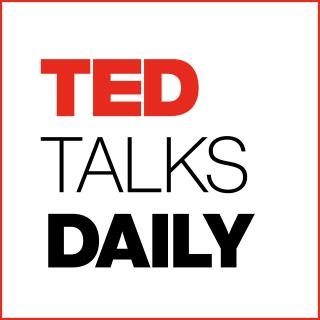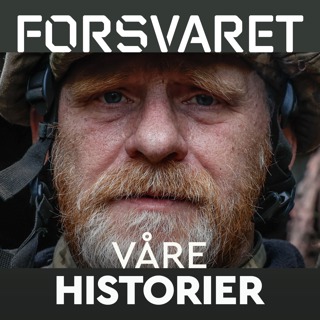
Why civilians suffer more once a war is over | Margaret Bourdeaux
In a war, it turns out that violence isn't the biggest killer of civilians. What is? Illness, hunger, poverty -- because war destroys the institutions that keep society running, like utilities, banks, food systems and hospitals. Physician Margaret Bourdeaux proposes a bold approach to post-conflict recovery, setting priorities on what to fix first Hosted on Acast. See acast.com/privacy for more information.
24 Okt 201714min

Who would the rest of the world vote for in your country's election? | Simon Anholt
Wish you could vote in another country's election? Simon Anholt unveils the Global Vote, an online platform that lets anybody, anywhere in the world, "vote" in the election of any country on earth (with surprising results). Hosted on Acast. See acast.com/privacy for more information.
24 Okt 201715min

A young inventor's plan to recycle Styrofoam | Ashton Cofer
From packing peanuts to disposable coffee cups, each year the US alone produces some two billion pounds of Styrofoam -- none of which can be recycled. Frustrated by this waste of resources and landfill space, Ashton Cofer and his science fair teammates developed a heating treatment to break down used Styrofoam into something useful. Check out their original design, which won both the FIRST LEGO League Global Innovation Award and the Scientific American Innovator Award from Google Science Fair. Hosted on Acast. See acast.com/privacy for more information.
24 Okt 20176min

Addiction is a disease. We should treat it like one | Michael Botticelli
Only one in nine people in the United States gets the care and treatment they need for addiction and substance abuse. A former Director of National Drug Control Policy, Michael Botticelli is working to end this epidemic and treat people with addictions with kindness, compassion and fairness. In a personal, thoughtful talk, he encourages the millions of Americans in recovery today to make their voices heard and confront the stigma associated with substance use disorders. Hosted on Acast. See acast.com/privacy for more information.
24 Okt 201710min

Know your worth, and then ask for it | Casey Brown
Your boss probably isn't paying you what you're worth -- instead, they're paying you what they think you're worth. Take the time to learn how to shape their thinking. Pricing consultant Casey Brown shares helpful stories and learnings that can help you better communicate your value and get paid for your excellence. Hosted on Acast. See acast.com/privacy for more information.
24 Okt 20178min

How to take a picture of a black hole | Katie Bouman
At the heart of the Milky Way, there's a supermassive black hole that feeds off a spinning disk of hot gas, sucking up anything that ventures too close -- even light. We can't see it, but its event horizon casts a shadow, and an image of that shadow could help answer some important questions about the universe. Scientists used to think that making such an image would require a telescope the size of Earth -- until Katie Bouman and a team of astronomers came up with a clever alternative. Bouman explains how we can take a picture of the ultimate dark using the Event Horizon Telescope. Hosted on Acast. See acast.com/privacy for more information.
24 Okt 201713min

How racism makes us sick | David R. Williams
Why does race matter so profoundly for health? David R. Williams developed a scale to measure the impact of discrimination on well-being, going beyond traditional measures like income and education to reveal how factors like implicit bias, residential segregation and negative stereotypes create and sustain inequality. In this eye-opening talk, Williams presents evidence for how racism is producing a rigged system -- and offers hopeful examples of programs across the US that are working to dismantle discrimination. Hosted on Acast. See acast.com/privacy for more information.
24 Okt 201717min

3 ways to plan for the (very) long term | Ari Wallach
We increasingly make decisions based on short-term goals and gains -- an approach that makes the future more uncertain and less safe. How can we learn to think about and plan for a better future in the long term ... like, grandchildren-scale long term? Ari Wallach shares three tactics for thinking beyond the immediate. Hosted on Acast. See acast.com/privacy for more information.
24 Okt 201713min






















